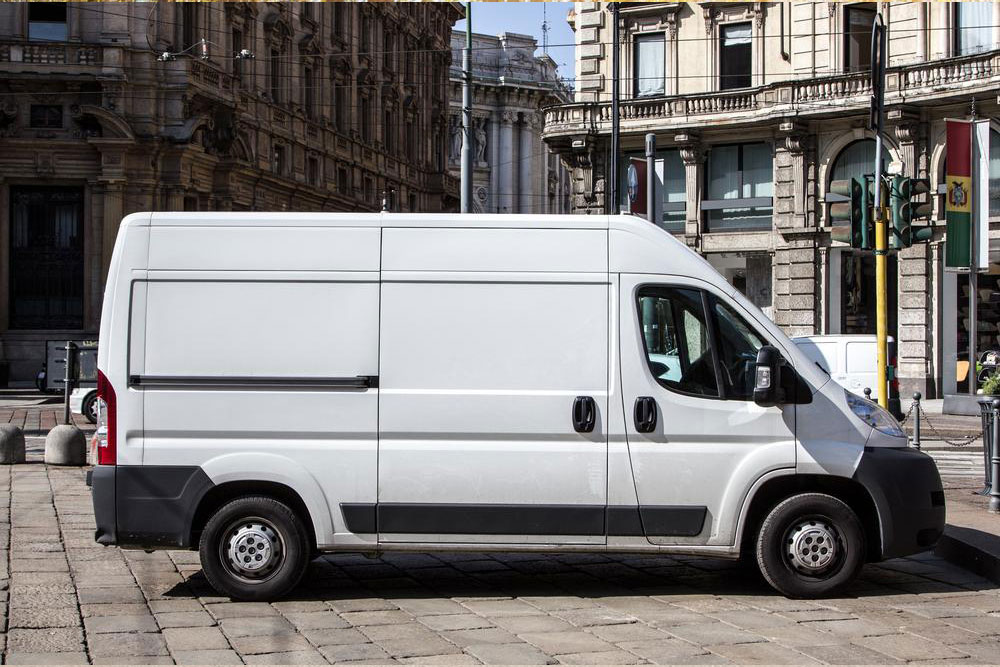Comprehensive Guide to Buying a Used Van: Tips and Considerations
This comprehensive guide offers valuable tips for purchasing a used van, covering everything from choosing the right model to inspection and negotiation. It helps buyers make informed decisions to ensure reliability, safety, and cost-efficiency. Whether you’re buying for business or recreational use, learn how to navigate online platforms, dealerships, and private sales effectively.

Comprehensive Guide to Buying a Used Van: Tips and Considerations
Purchasing a van is a significant decision, often influenced by a variety of practical needs ranging from expanding business operations to family transportation and recreational activities. Whether you're considering a used van due to budget constraints or for specific functional reasons, understanding the intricacies of buying pre-owned vehicles is vital for securing a reliable, cost-effective, and suitable option. This comprehensive guide aims to provide valuable insights into the process of selecting, inspecting, and purchasing a used van, ensuring you make an informed decision that aligns with your requirements and financial situation.
Understanding why you need a van can help narrow down your options. For example, if your goal is to transport bulky equipment or goods, you'll want a model with ample cargo space and durability. For family outings or daily commutes, comfort and safety features become more critical. Recreational enthusiasts, such as those into skiing or biking, might prioritize models with versatility or additional storage solutions. Once you have a clear purpose, the next step is to explore the avenues available for purchasing used vans, including online marketplaces, local dealerships, private sellers, and certified pre-owned programs.
Online platforms like eBay Motors, Autotrader, or specialized auto websites make it straightforward to browse a wide range of used vans nationwide. These platforms often provide filters to refine searches by price, mileage, model year, and location, making comparison shopping more manageable. Many sellers also list detailed vehicle histories and inspection reports, which are crucial for assessing a vehicle’s condition before making a purchase. Additionally, some online marketplaces facilitate bidding, allowing you to potentially buy at a lower price, or direct buy options for straightforward purchases.
On the other hand, offline options include visiting local dealerships or private sellers. Dealerships offering certified pre-owned (CPO) vehicles provide the advantage of rigorous inspections, warranties, and financing options. These vehicles have typically undergone comprehensive checks, ensuring better reliability than private sales from individual owners. Private sellers, however, might offer lower prices and more room for negotiation, but buyers should be prepared to conduct thorough inspections and verify vehicle history independently.
When considering a used van, it’s essential to examine a wide range of factors. First, inspect the exterior for signs of previous accidents, rust, dents, or mismatched paint, which could indicate poor repair work or neglect. Inside, check for odors, upholstery wear, and cleanliness, as these might indicate the vehicle's overall maintenance and usage. Don’t forget to review the vehicle's maintenance history—regular servicing records, receipts for repairs, and prior accident reports are valuable indicators of vehicle health.
Performing a test drive is a crucial step. Evaluate how the van handles on the road, paying attention to braking, steering, and suspension. Listen for unusual noises or vibrations that could signal mechanical issues. Check all vital features such as lights, brakes, air conditioning, and entertainment systems. If you’re not familiar with vehicle mechanics, consider hiring a trusted mechanic to conduct a pre-purchase inspection. This professional assessment can uncover potential problems that might not be visible during a casual inspection, saving you future repair costs.
Pricing and negotiation are also vital aspects of the buying process. Research the market value for the specific van model you're interested in by using tools like Kelley Blue Book or Edmunds. This will give you a realistic price range and help you negotiate effectively. Be prepared for negotiations—private sellers and dealerships alike expect some bargaining, especially if you find issues during inspection or test drive. When making a deal, clarify warranty conditions, return policies, and financing options if applicable.
Finalizing your purchase involves reviewing all paperwork meticulously. Ensure the title is clear, free of liens, and matches the vehicle identification number (VIN). Confirm that all necessary documents, such as registration and bill of sale, are properly completed. After acquiring the van, remember to update registration and insurance policies to reflect your ownership.
Buying a used van requires careful preparation and attention to detail, but when done correctly, it can yield a reliable vehicle tailored to your specific needs at a fraction of the cost of new models. Patience, thorough research, and professional inspections are your best tools in ensuring a smooth purchase process. With these guidelines, you can confidently navigate the pre-owned van market and find a vehicle that offers great value and longevity for your personal or business use.





